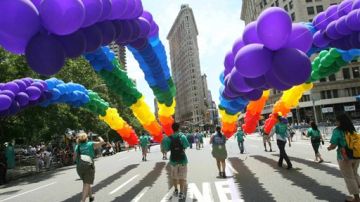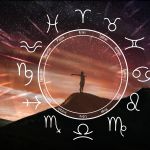Gay rights backers see history in Obama’s stand

Crédito: AP
New York/AP — At a birthplace of the gay rights movement, patrons of New York City’s Stonewall Inn said they felt like they were living history. In Wyoming, the mother of a man beaten to death because of his sexuality said words couldn’t express her gratitude. An 82-year-old photographer who chronicled protests in the 1960s called it “a new dawn.”
President Barack Obama’s declaration Wednesday that he supports gay marriage may have lacked the urgency of Kennedy’s 1963 push for the Civil Rights Act, or the force and finality of the Emancipation Proclamation, but it was still being greeted as a major milestone among people who care about gay rights.
“It signifies a history-changing moment when a president finally says, ‘I’m on your side.’ It’s a critical moment,” said Stacy Lentz, a co-owner of the Stonewall, a reincarnated version of the unlicensed gay bar in Manhattan’s West Village that was the site of riots following a police raid in 1969.
Just how big of a moment remains to be seen. While public opinion polls show an increasing number of Americans are receptive of gay marriage, and accepting of homosexuality in general, the movement hasn’t fared well at the ballot box. On Tuesday, North Carolina voters overwhelmingly approved a constitutional amendment defining marriage as between a man and a woman.
Still, at mileposts and bastions in the struggle, Obama’s words were being welcomed.
SAN FRANCISCO
There were limits to Obama’s support for gay marriage. Notably, he said he believed that it was up to individual states to decide whether they would legalize same-sex marriages. That contrasted sharply with President John F. Kennedy’s forceful condemnation of segregation in a nationally televised address in 1963, during which he called for federal legislation to end racial discrimination, and said states couldn’t be left to deal with matters on their own.
At low-key celebrations in San Francisco’s historically gay Castro District on Wednesday night, Cleve Jones, a protégé of slain gay rights pioneer Harvey Milk, said he spent time trying to explain “how long it’s taken us to get to this point” to young people who reacted cynically to the president’s announcement.
He said the closest historical precedent to Obama’s statement was the opposition from then-President Jimmy Carter and his soon-to-be successor, Ronald Reagan, to a 1978 California ballot initiative that would have prevented gays and lesbians from teaching in the state’s public schools.
“It is historic. It would be difficult to overstate the significance of it to the movement,” Jones said.
Stuart Gaffney, a plaintiff in a lawsuit challenging the legality of a California constitutional amendment outlawing same-sex unions, also said there was much to celebrate in the president’s remarks.
“I have never felt so proud to be an American,” he said. “I think the president looked at this with his heart, not as a political calculation, but what’s the right thing to do? That’s what any president should do. He stood on the side of love.”
WASHINGTON
Lilli Vincenz, 74, was one of about a dozen people who were part of the first gay rights protest in front of the White House in 1965, back in an era when almost no one in power took the issue seriously.
“It was so important that we become visible, because we weren’t really visible before,” said Vincenz, who now lives in Arlington, Va., and for decades has driven a car with a license plate that reads “Change.”
Vincenz said she was proud to march that day, and she is thrilled that Obama has embraced gay marriage.
“It’s very important, and it’s very important for the rest of the United States,” said Vincenz, who was discharged from the Army in 1963 for being gay.
Vincenz and her partner, Nancy Ruth Davis, held a commitment ceremony in Key West, Fla., in 1986, but they are not legally married. Obama’s announcement got her thinking about marrying legally, she said, though she doesn’t particularly want to travel to one of the six states and the District of Columbia that allow same-sex marriage.
Kay Tobin Lahusen, 82, a photojournalist who chronicled the early gay rights movement in the 1960s and marched in many early protests, called the president’s announcement “a new dawn for our movement.”
She said that during one of the early protests at the White House, demonstrators handed a letter to someone at the White House gates, hoping it would get to President Lyndon Johnson. They never learned if it did.
In those early days, she said, gay marriage seemed “out of the question” and “the impossible dream.”
“Much of the movement thought it was just impossible and fanciful and perhaps just a little bit trivial,” she said. “I felt it was absolutely key to our movement. I always believed it was something we should fight for.”
Lahusen, who now lives in Kennett Square, Pa., never married her partner of 46 years, Barbara Gittings, who died in 2007. But she said the two were “married in our hearts.”




